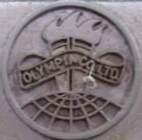Olympia (company)
From Sega Retro
- For the unrelated pachislot manufacturer, see Olympia (pachislot company).
Olympia Co., Ltd. (株式会社オリンピア), also known as Olympia Game, was a joint venture established by Taito and Nihon Goraku Bussan to manufacture and sell the Olympia Star slot machine, bringing a form of legalized slot gambling to Japan and laying the foundations for the future medal game industry.[2]
Company

Around 1960, Taito was selling its new Royal Crown slot machine in gambling-legal territories.[3] Unfortunately, it was unable to be sold in Japan, which forced the company to examine alternatives to the traditional slot machine market. As gambling is largely illegal in Japan, Taito conceptualized a way to circumvent domestic anti-gambling laws by creating a slot machine which would use specialized tokens; these tokens would later be traded for real money.[4] Such a project to introduce gambling to Japan had been previously attempted in 1951 and later rejected[4], so Taito took an additional step in differentiating their system by including a stop button on each of the three reels - this was framed as adding a skill-based element to the game.[4] Importantly, the new version of the Royal Crown would be officially categorized as a "sex industry sales machine" to further distance itself from the slot machine market.[4][5] Taito's Akio Nakanishi recalls the process of acquiring permission for this form of gambling took a total of 5 years, working closely with pachinko parlor owners and industry insiders to further improve their chances. Regardless, when the company somehow managed to actually acquire permission from authorities to produce the machine in 1963[1], the industry was shocked.[2]
Taito launched its new token-equipped Royal Crown into the Japanese market sometime that year. However, immediately after their breakthrough, Taito caught wind that other companies, including Nihon Goraku Bussan, were about to launch a similar product with an identical token system.[4] An upset Taito then made its grievances known throughout the industry[6], with the authorities reportedly getting involved at one point.[1] Possibly due to the fact that both machines were copies of the same Mills standard[6], the two companies ultimately chose to settle on a compromise.
Olympia Co., Ltd. (a name created by Taito to capitalize on Tokyo's 1964 Summer Olympics) was officially established soon after as a special joint venture between Sega Enterprises and Taito. Akio Nakanishi would manage Taito's side, and a Mr. Shiina would manage Sega's side, with the two meeting together at night following their day jobs; reportedly, the pair managed to get along without any fighting.[1] It was agreed upon that Sega would manufacture the new machines and Taito would handle their sales and marketing[6]; the end result would be the Olympia Star, released that same year. Although this new type of slot machine (dubbed "Olympia Machines" by the Japanese public[2]) was intended to be published only through Olympia Co., Ltd., both Sega and Taito participated in selling their own unique versions of the machine for the next decade.[7]
Olympia would continue to publish four further Olympia machines. Known as the Olympia series, these machines were produced up until at least 1974. The Olympia logo, fittingly inspired by the Olympic flame, appears emblazoned on every officially-licensed slot machine in the series. However, the company ran into a number of small issues during their existence, such as problems related the "unsavory" nature of this new industry compared to their earlier success in Space Invaders. Nakanishi recalls that sales were growing slower and slower, and despite their hard-won permission, the company was still being harassed by the authorities. Unfortunately, top executives at both Sega and Taito lacked the motivation to further invest in the business, and Olympia officially shut down in the mid to late 1970s.[1]
Softography
Slot machine
- Olympia Star (1964)
- New Olympia (1969)
- Olympia Mark II (1971)
- Olympia Mark III (1972)
- Olympia Golden Star (1974)
External links
- The mystery of the origin of a Pachislot called Olympia article at Old gamer's memory of arcade games and its surroundings (Japanese)
References
- ↑ 1.0 1.1 1.2 1.3 1.4 https://drive.google.com/file/d/1iWqL99dbpSGrNIu8gzmYc5jglunRWwDw/view
- ↑ 2.0 2.1 2.2 https://blog.goo.ne.jp/nazox2016/e/d2691f40123ae387fedcc2b567659706
- ↑ https://blog.goo.ne.jp/nazox2016/e/22190e8b53d96394e4843317cc6932eb?fm=entry_awc
- ↑ 4.0 4.1 4.2 4.3 4.4 https://blog.goo.ne.jp/nazox2016/e/71646fc259602a59deb9707332200cd4?fm=entry_awc
- ↑ File:Olympiaseries SM JP flyer.jpeg
- ↑ 6.0 6.1 6.2 https://blog.goo.ne.jp/nazox2016/e/f43ea93334695ed0ff036c2916b2a5be?fm=entry_awc (Wayback Machine: 2024-01-29 01:40)
- ↑ https://blog.goo.ne.jp/nazox2016/e/48f4b03c1f524aad673d296569deba4b?fm=entry_awc
